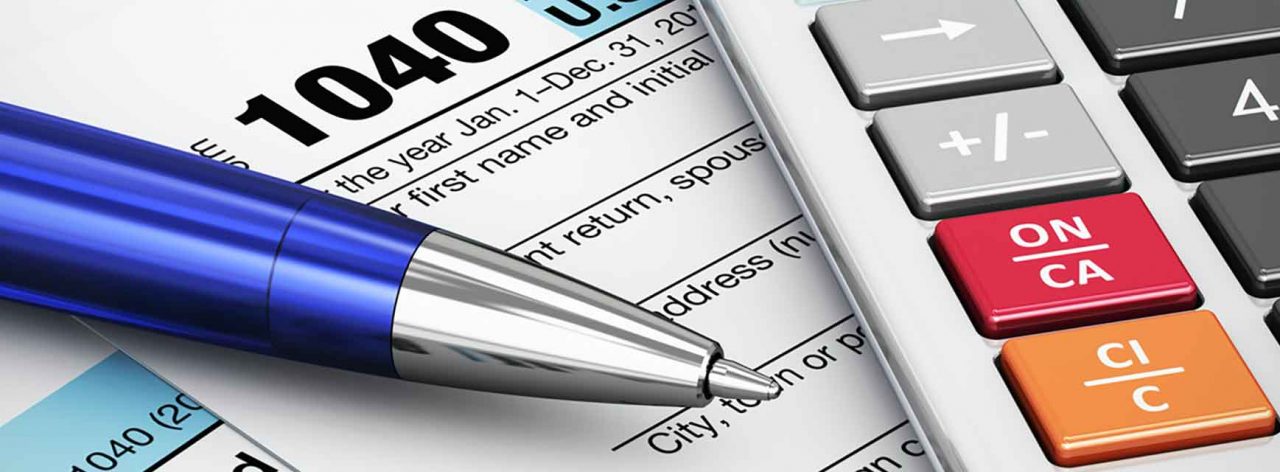|
A large bill was unveiled on December 21 that would provide tax and direct spending relief for businesses and individuals affected by the coronavirus pandemic and extend dozens of expiring tax deductions, credits, and incentives. One of the reliefs that would be useful to individuals is the charitable donation deduction.
In 2020 there will be a universal deduction of up to $300 for cash gifts made by an individual directly to a charitable organisation. This deduction will apply to all taxpayers and includes those who do not itemise their deductions and claim the standard deduction. This legislation has been extended up to the end of 2021 and the deduction for married filing joint taxpayers has increased from $300 to $600. For those who will want to itemise their deductions this year and next, the usual limitation for cash gifts made to public charities will be suspended and a deduction of cash donations will be allowable of up to 100% of their AGI.
Please note that these changes only apply to cash contributions made directly to public charities and do not apply to contributions made to private foundations, donor advised funds or supporting organisations.
In November 2020, the Treasury Department and IRS issued final regulations relating to section 1031 like-kind exchanges. These final regulations address the definition of real property under section 1031 and also provide a rule addressing the receipt of personal property that is incidental to real property received in a like-kind exchange.
The 2017 Tax Cuts and Jobs Act (TCJA) limited like-kind exchange treatment to exchanges of real property. As of January 1, 2018, exchanges of personal or intangible property such as vehicles, artwork, collectibles, patents, and other intellectual property generally do not qualify for nonrecognition of gain as like-kind exchanges. Also, like-kind exchange treatment applies only to exchanges of real property held for use in a trade or business or for investment. An exchange of real property held primarily for sale does not qualify as a like-kind exchange.
Under the final regulations, real property includes land and generally anything permanently built on or attached to land. In general, real property also includes property that is characterised as real property under applicable State or local law. In addition, certain intangible property, such as leaseholds or easements, qualifies as real property under section 1031. Property not eligible for like-kind exchange treatment prior to enactment of the TCJA remains ineligible.
The Financial Crimes Enforcement Network (FinCEN) has announced that, currently, the Report of Foreign Bank and Financial Accounts (FBAR) regulations do not define a foreign account holding virtual currency as a type of reportable account. Accordingly, a foreign account holding virtual currency would not be reportable on the FBAR (unless it is a reportable account because it holds reportable assets besides virtual currency). However, FinCEN announced that it intends to propose to amend the regulations implementing the Bank Secrecy Act (BSA) regarding reports of foreign financial accounts (FBAR) to include virtual currency as a type of reportable account. Therefore, it is likely that very soon Virtual currency accounts will need to be reported on the FBAR, although currently there is no such requirement.
The Wealth Tax Commission has released a study which calls for a one-off tax of 5% on assets above £500,000. This wealth tax could raise £260bn for public finances hard hit by the COVID-19 pandemic. The tax would also apply to all residents (including non-doms) on an individual basis rather than as a household.
The wealth tax would be based on the open market value of all of an individual’s assets, except for low value personal items (worth less than £3,000) on the basis there would disproportionate administrative costs for such assets.
The key points of the report are:
-
- Tax would be calculated on the market value of an asset on predetermined dates of:
– Pensions
– Investments
– Savings
– The Primary Home
– Minus any debt, such as mortgages
- Payment of the tax in five equal instalments over five years
- Spouses or partners could pool their allowances effectively giving households more than £1M net wealth
The Commission was founded in April 2020 and, despite its name, is not a government-appointed body. The report considered a one-off wealth tax and an annual wealth tax. It concluded that a one-off tax would be fair, efficient and very difficult to avoid. It is unknown whether this is an option the government will take, however individuals should give this due consideration.
It has been forecasted that the government will need to find up to £40 billion a year to recover from the mass deficit created by the unprecedented levels of government spending during the ongoing pandemic. Inevitably, the recuperation of £40 billion a year will derive from substantial cuts or additional revenue; and possibly various forms of tax changes introduced by Rishi Sunak in the upcoming Budget due March 2021 – with a potential target being Capital Gains Tax. Following a request from the Chancellor, Rishi Sunak, the Office of Tax Simplifications (OTS) published its first report, on 11th November, into the review of capital gains tax (CGT). The main recommendations from the OTS are:
- Aligning CGT rates with income tax.
- Lower the annual exemption on CGT
- Taxing share incentives as income rather than capital gains
- Removal of the uplift to market value on assets inherited on death relief
- Reducing or eliminating entrepreneurs’ relief/business asset disposal relief.
It would be wise for investors, private equity executives and owner-directors (amongst others) as well as anyone else holding assets standing at a significant gain, to take the contents of the report into consideration and take advice on their options over the next few months.
In HMRC v Development Securities, the Court of Appeal has overruled the Upper Tribunal and agreed with the First-tier Tribunal that the relevant Jersey incorporated subsidiaries of a UK parent were resident in the UK for tax purposes by reason of being centrally managed and controlled in the UK.
While of considerable interest, it should be remembered that the question of where a company is centrally managed and controlled is principally one of fact and so different facts might yield a different conclusion.
What the Court of Appeal’s decision shows is that the line between non-UK and UK residence can be a fine one when it depends on whether the overseas company’s directors gave due consideration to the transaction as a whole or just to a small element of it, and that, accordingly, non-UK company boards should always make sure that they give proper consideration to the transaction as a whole, albeit informed by advice or recommendations that they might have received from the UK, to minimise the risk of being treated as UK resident.
The decision has yet to be appealed to the supreme court.
It has been forecasted that the government will need to find up to £40 billion a year to recover from the mass deficit created by the unprecedented levels of government spending during the ongoing pandemic.
Inevitably, the recuperation of £40 billion a year will derive from substantial cuts or additional revenue; and possibly various forms of tax changes introduced by Rishi Sunak in the upcoming Budget due March 2021 – with a potential target being Capital Gains Tax.
Following a request from the Chancellor, Rishi Sunak, the Office of Tax Simplifications (OTS) published its first report, on 11th November, into the review of capital gains tax (CGT).
OTS Recommendations to the Treasury:
-
Aligning CGT rates with income tax.
Due to the difference in rates of income tax and CGT, taxpayers try to convert their income into capital gains; therefore, by aligning the rates of income tax and CGT it would simplify the tax rules and there would be no need to complex anti-avoidance provisions that have been implemented to police the boundary between income and capital gains.
However, a concept that needs to be taken into consideration is that if these two rates were to be aligned, there would be a need for consequential changes due to potential factors if may affect:
-
-
- There would be a possibility of averaging gains over the holding period of an asset. This would mean that a basic rate taxpayer does not have to pay tax at a higher rate due to a large gain that has realised in a particular tax year
- Making some allowance for inflation
- Allowing more flexible use of losses
- Discouraging people from using companies as asset holding vehicles in order to access the lower rates of corporation tax compared to any increased rate of CGT
-
-
Lower the annual exemption on CGT; and therefore, almost doubling the amount of people who become liable to pay tax annually
Currently, the annual exemption on CGT is set at £12,300. If Rishi Sunak were to agree with the OTS’ recommendation, the exemption would be lowered to £2,000 to £5,000 which consequentially results in an increase of revenue between £500 million to £900 million as 300,000 to 400,000 more individuals would need to pay Capital Gains Tax.
-
Taxing share sales as income
As the rates of income tax and CGT are not aligned at present, the Office of Tax Simplicity has suggested that it may be less complex if certain share sales were taxed as income; in particular share incentives for employees and retained earnings in small owner-managed businesses.
-
Share incentives
The OTS has recommended that the government should consider taxing more share-based rewards from employment as income rather than capital gains as a method to help close the £40 billion deficit gap that has been created due to the COVID-19 pandemic.
-
Owner-managed businesses
In regards to owner-managed business, the OTS believes that it must be determined whether an individual who accumulates trading profits within a company and then sells the company; which consequentially means that they will be paying capital gains on the profit on the sale, will be in a better position that someone who carries on a business in their own name and/or receives the profit as salary or dividends.
The main argument in this circumstance is that as the profits relate to the individual’s labour, they should be made subject to income tax rather than CGT.
-
Lifetime gifts and gifts on death
Removal of the “uplift on death relief – which currently allows beneficiaries to inherit an asset at market value on the date of death as opposed to the value on the date of purchase. Alternatively, an amendment of this relief so that assets are re-based to 2000, for example, rather than the date of death.
-
Entrepreneurs’ relief/business asset disposal relief
The Office of Tax Simplicity has recommended further reductions (or potential elimination) of mistargeted BADR (business asset disposal relief, formerly known as entrepreneur’s relief). Following on from this, they believe that it should be replaced with retirement relief (which was abolished in 2003 due to its complexity) as a method of business owners and managers to build up the value in their businesses as a form of pension arrangement.
-
Abolishment of Investors’ Relief
With support of the minimal evidence that individuals are utilising Investor’s Relief since it was introduced in 2016. The OTS have recommended that it should be abolished.
Next Steps
Although it remains unknown whether Rishi Sunak will implement these recommendations suggested by the OTS, it would be wise for investors, private equity executives and owner-directors (amongst others) as well as anyone else holding assets standing at a significant gain, to take the contents of the report into consideration and take advice on their options over the next few months.
As the government will most certainly be looking for methods to raise revenue that are politically acceptable; this will inevitably include targeting the wealthy as CGT is a pathway that can be used as a way to raise tax revenue without breaking the government’s manifesto agreement.
If you require any further information on this, please do not hesitate to contact our team for further information.
– Frontier Fiscal Services
Unreported Foreign Income
A U.S Taxpayer has very specific tax and reporting requirements to the IRS. Should the taxpayer have unreported income, accounts, or assets from overseas, there are various offshore tax amnesty procedures that are available to them to either limit or eliminate penalties. However, this is only viable if the foreign income, accounts, or assets were not reported unintentionally.
Disclosing Unreported Foreign Income
As the U.S. taxes filers on their worldwide income, the taxpayer should primarily assess their foreign income sources to determine what overseas earnings they have not reported.
This applies to all U.S. Persons, whether they reside in the U.S. or overseas — and whether the income is U.S. or foreign sourced.
Types of Unreported Foreign Income:
- Foreign capital gains receive the same long-term or short-term treatment under US tax return as if it was a US asset.
- If you are receiving dividends, then you may be able to obtain qualified dividends, but this depends on which country you have assets in.
- If you are receiving foreign interest income you still report the income on your tax return, and pay U.S. tax at your ordinary tax rate; even if it is in a country which does not tax that category of passive income such as Hong Kong or Singapore.
Foreign Tax Credits:
The intent of the Foreign Tax Credit is to avoid or limit any double-taxation on foreign income you earned abroad but already paid on
You may be entitled to a foreign tax credit if you have already paid foreign taxes on your foreign income; either by filing a foreign tax return or have money withheld from your account abroad.
Filing U.S. Tax Returns
You may be able to widen your options available to you for amnesty if you have consistently been filing your US tax returns.
If you would like to discuss this further, please contact us.
What is a Streamlined Foreign Offshore Procedure?
The Streamlined Foreign Offshore Procedures (SFOP) is a method implemented by the IRS for foreign tax residents which allows them to be brought into offshore compliance. By doing this, the taxpayer can submit amended or original tax returns for prior years; and international information returns such as the FBAR.
Following the SFOP means taxpayers can disclose previously unreported offshore bank accounts, assets, income, and investments without being penalised for past foreign account violations that they may hold. In this case, all FBAR penalties, along with other foreign asset penalties will be waived by the U.S. Government.
Eligibility for the Program
A U.S person must meet 3 main requirements to apply for the Streamlined Foreign Offshore Procedure:
- They must be non-wilful
- They must qualify as a “Foreign Resident”
- They should not be under audit
- Non-Willful
-
- If a person was unaware that there was a foreign account, foreign income, or foreign asset reporting requirement, the applicant may qualify as non-willful.
- Foreign Resident
-
- To qualify as “Foreign Resident,” you must be either a:
-
- U.S. Citizen or Legal Permanent Resident (Green Card Holder) and reside outside of the United States for at least 330 days in any one of the last three; or
- Not qualify as a U.S. Citizen or Legal Permanent Resident, and not meet the Substantial Presence Test in at least one of the last three (3) tax years) you may obtain a waiver of all FBAR and FATCA penalties.
- Under Audit or Examination?
-
- If the IRS has instigated a civil examination of taxpayer’s returns for any taxable year, regardless of whether the examination relates to undisclosed foreign financial assets, the taxpayer will not be eligible to use the streamlined procedures. (IRS)
-
- A taxpayer under criminal investigation by IRS Criminal Investigation is also ineligible to use the streamlined procedures. (IRS)
It would be advisable to fulfil the SFOP if needed as the IRS have recently implemented a more aggressive approach to foreign residents with a U.S. status who have unreported offshore bank accounts, assets, income and investments by enforcing larger penalties.
Following Streamlined Foreign Offshore Procedures allows for all penalties to be avoided.
If you would like to discuss this further, please contact us.






